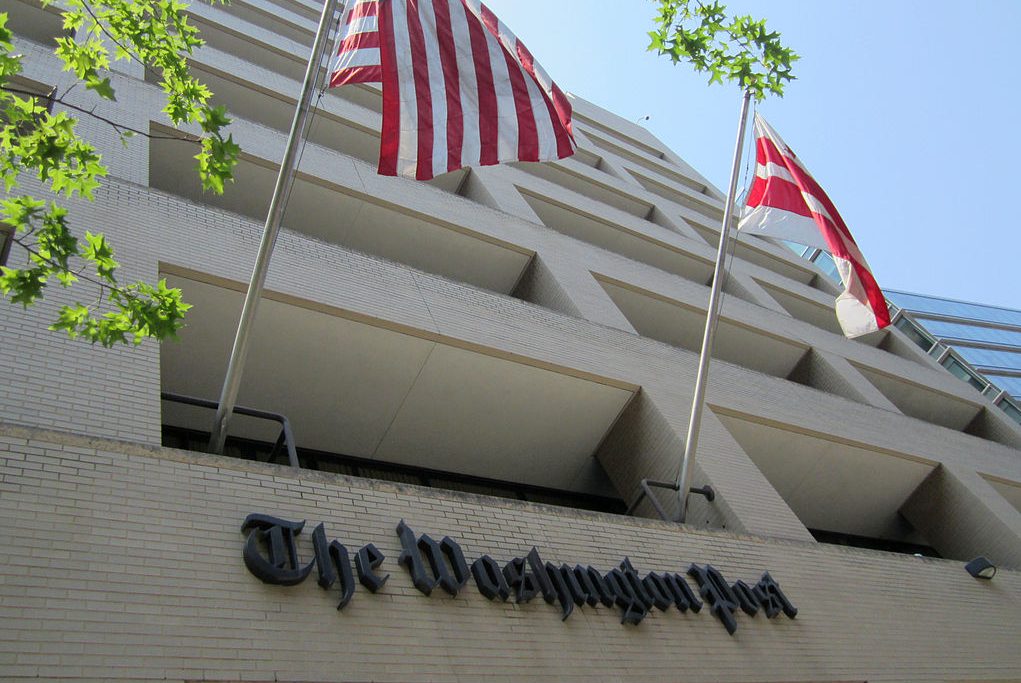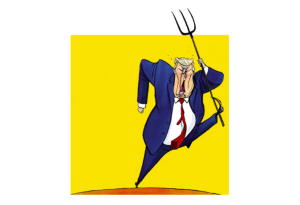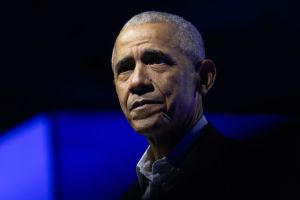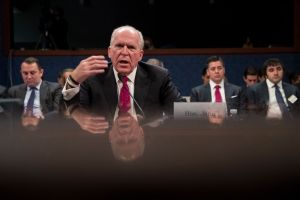The Washington Post is collapsing. Once one of America’s great media institutions, the paper lost $100 million last year and has shed 500,000 subscribers. Recent reports reveal that Post owner Jeff Bezos is going to be more hands-on to try and save the paper.
Yet trying to get employees of the Post to do their jobs is like trying to get dogs to play baseball. Dogs just aren’t interested in baseball, and the breed of journalist now at the Post is just not interested in journalism. Always a liberal paper, the Post is now pure propaganda.
Earlier this year, veteran Post reporter Bob Woodward, who of course became famous for his Watergate coverage, blasted the media and the young reporters at his own paper for their falling for “Russiagate,” the hoax that President Donald Trump was working with the Russians. Woodward called the Steele dossier, the basis for that story, garbage, and told the Columbia Journalism Review that the media had to “walk down the painful road of introspection.” Woodward then said this: “To be honest, there was a lack of curiosity on the part of the people at the Post about what I had said, why I said this, and I accepted that and I didn’t force it on anyone.”
At the Post the problem is not as much a lack of curiosity as much as the desire to push a certain narrative. This is where my personal experience with the paper comes in.
On September 16, 2018, Washington Post writer Emma Brown reported that Christine Blasey Ford, a psychologist in California, accused Brett Kavanaugh of sexual assault. Kavanaugh had been nominated for the Supreme Court and was about to be voted out of committee. Ford claimed that he had sexually assaulted her in high school in 1982.
Ford also claimed that I was in the room where the assault allegedly took place and that I witnessed everything before jumping in and breaking it up. As I wrote in my book, The Devil’s Triangle, the entire thing was a set-up. The Devil’s Triangle is written by me, someone whose family has been Washingtonians for more than 100 years, whose grandfather played for the Washington Nationals, whose father worked at National Geographic, a DC institution. I was at the center of one of the most amazing political battles in the last half-century. The Washington Post never reviewed my book or ever mentioned it.
That’s not a lack of curiosity. That’s the kind of willful ignorance that loses a paper $500 million. Ask yourself this: in identical circumstances say, thirty years ago, with Bob Woodward more actively involved, would the Post have reviewed The Devil’s Triangle?
Of course they would have. There is plenty on my book to interest any decent reporter with even the most basic skills and a working mind. However, much of it is about the corruption of the media itself. I reveal how Emma Brown emailed me on the morning of September 16, the day she broke the Ford story in the Washington Post. Brown emailed me to ask about the allegation; however, the information she asked me to respond to was different from what was published in her Washington Post article. In her email to me, which was leaked to the media, Brown referenced a girl named Leland Keyser, who was allegedly at the party that Ford, Brett and I also supposedly attended.
In the Washington Post piece published hours later, there was no mention of Leland Keyser. At the Wall Street Journal, Kimberly Strassel noticed this. She asked: why is there no mention of Leland Keyser in the official Post piece? Why didn’t Post reporter Emma Brown mention Keyser, who according to Ford was at the party in question?
On September 22 — almost a week later — the Post answered. From Fox News:
Ford, the Post acknowledged in an article by reporter Emma Brown on Saturday, had told the paper more than a week ago about Keyser and said “she did not think Keyser would remember the party because nothing remarkable had happened there, as far as Keyser was aware.” But the Post did not mention Keyser specifically or Ford’s preemptive dismissal of her memory in its original recounting of Ford’s allegations, a bombshell story that has threatened to upend Kavanaugh’s Supreme Court confirmation. The story mentioned only that “Ford named two other teenagers who she said were at the party” and that “those individuals did not respond to messages on Sunday morning.
As Strassel put it on Twitter: “Wow. Ford said Leland Keyser wouldn’t remember the party, and Brown just decided to believe her and not mention Keyser at all.”
It’s not hard to see why. Keyser, it turns out, was a disaster for Ford’s credibility. In 2019 Keyser revealed to Robin Pogrebin and Kate Kelly, two reporters for the New York Times, that she did not believe Ford’s story. Further, Keyser said she felt threaded to change her story. “We spoke multiple times to Keyser, who also said that she didn’t recall that get-together or any others like it,” Pogrebin and Kelly reported. “In fact, she challenged Ford’s accuracy. ‘I don’t have any confidence in the story.’”
So we have extortion, opposition research and other terrible activity, all detailed in a book written by someone who was at the center of it all and whose family has been in Washington almost as long as the Washington Post itself.
If Bob Woodward believes ignoring this kind of stuff is just “incuriosity,” he too needs to take a long walk “down the road of introspection.”





















